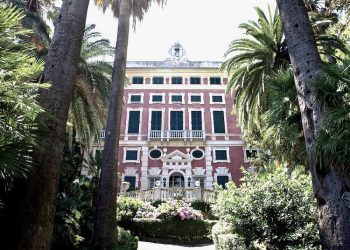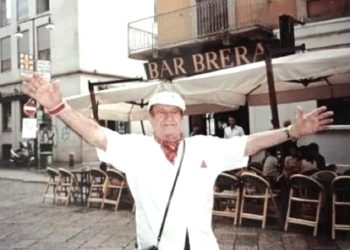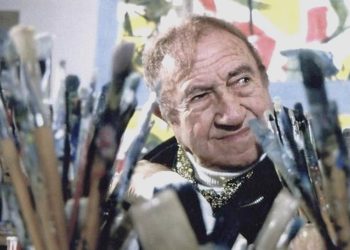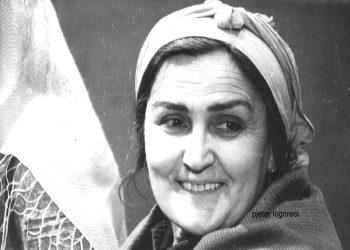By Gëzim Kabashi
Memorie.al / Some time ago, the Durrës stage artists celebrated the 61st anniversary of the establishment of the “Aleksandër Moisiu” Theater in the coastal city. Along with it, they commemorated one of the people who contributed the most to the growth of this artistic institution, the scenographer Zef Ujkaj. Zef died on January 18, 1990. I was very young when the scenographer of the “Aleksandër Moisiu” Theater in Durrës was banished to another job that had no connection to his training and abilities.
Zef Ujkaj would spend the rest of his life working as a house painter. It was 1975, and the dictatorial system that transferred or “circulated” him, as the milder term was known then, struck Zef Ujka severely. Only 39 years old, at the peak of his creative energy, he was removed from the stage where he “built” dozens of views of the reality he lived in and the one he wished to live in.
Fellow actors and directors, as well as the employees of the Goods Park (Parku i Mallrave) who worked with him, continue to respect the memory of the cultured man who contributed to the artistic life of Durrës, not only as a scenographer and painter but also as a visionary of cultural thought. We, his younger fellow citizens, remember him moving around the city with his overcoat tied around the waist and his thick mustache, which tried to hide his sadness.
The Passion for Painting
Zef was born in Tirana on March 16, 1936. “Painting was his passion, and all his free time he spent painting, from the tree stumps in the yard to his grandmother and us brothers,” his late brother, Gjergj Ujkaj, once wrote. “Grandmother would tell him: ‘Give up that trade, no one has seen any good from it,'” Gjergji recalls.
But the passion was stronger. During high school, Zef began visiting the studio of the well-known sculptor Sabri Tuçi in Durrës. The young man’s works attracted the attention of specialists, and although he was 20 years old, he attended classes at the Artistic Lyceum in Tirana. It would not last long.
After a few months, he was called to perform military service, certainly in a labor brigade, as he came from a “declassed family.” But Zef did not give up. He finished the Lyceum, and his classmates remember the success of the work with which he defended his diploma, “The Kosovar Bride.”
A painting that even enthusiastic his distinguished professors Nexhmedin Zajmi, Abdurrahim Buza, and Sadik Kaceli. Zef Ujkaj became the official scenographer of the “Aleksandër Moisiu” Theater thanks to a fortunate circumstance. His predecessor retired.
A period of creation would begin, in which the painter’s muse was not enough. Theater, as a collective art, required the ideas of everyone from the director and actors to the lighting and sound. With Zef, scenography became one of the strongest points of the Durrës Theater.
“Zef was not only a first-class scenographer, but he also cast his eye on the actors’ performance and the director’s art,” recalls the “Artist of the People” Gjergj Vlashi. “He did not acquire that deep knowledge in school because it was denied to him, but through persistent work and serious commitment. As a genuine intellectual, Zef was formed at the work table with a book and a paintbrush in hand,” writes the well-known director Vlashi.
The Formed Artist
But despite the great contribution he had made to scenography, Zef was removed from the theater exactly at the time of his maturity and when he could have given the most. His wife, the well-known actress Filika Ujkaj, was also removed from the theater, worsening the family’s economic situation. Zef was sent to work as a… house painter. Even there, as always, he was dignified and hardworking.
“At the Goods Park, the respect for him was legible and widespread,” says Kujtim Plangarica, one of his close work friends. “They called him ‘Baca Zef’ (Uncle Zef),” Plangarica recalls, continuing: “Naturally, outside the official organizational structure, a job was created for him as a designer, even though some isolated voices would call out: ‘Ehh, that house painter you call a painter.'”
The dictatorship took the paintbrush from his hand and gave him the painter’s roller. “It thought it had disarmed him, but you could break Zef’s paintbrush, yet you couldn’t defeat his unyielding spirit, his manhood, his strong character, and his spiritual and mental integrity,” states director Gjergj Vlashi.
He continued to work on the easel as a painter with outstanding abilities, as seen particularly in “Portrait of the Grandmother,” “a psychological investigation that is marvelous,” as Gjergj Vlashi writes.
“Zef worked on the last painting of his life on the balcony of his house and dedicated it to his two wonderful daughters, Xheini and Silvi, whom, along with Filika, he raised with complete parental care.
Zef Ujkaj was among the first to feel the warm currents of democracy that began to blow in the frost of the dictatorship; he discerned the first signs of a new dawn rising after the long night. Exactly 35 years ago, he passed away after a serious illness, at the age of 54. / Memorie.al




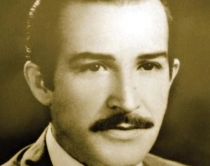
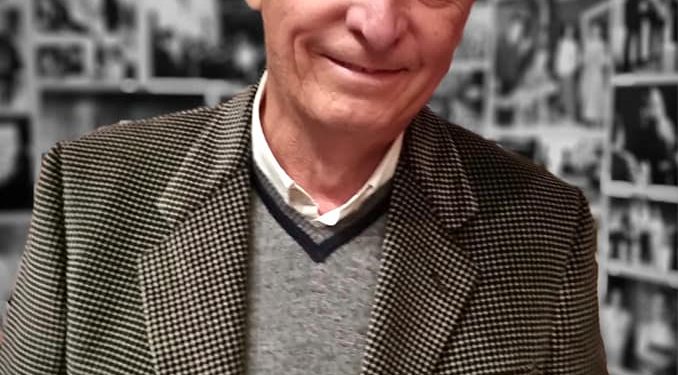
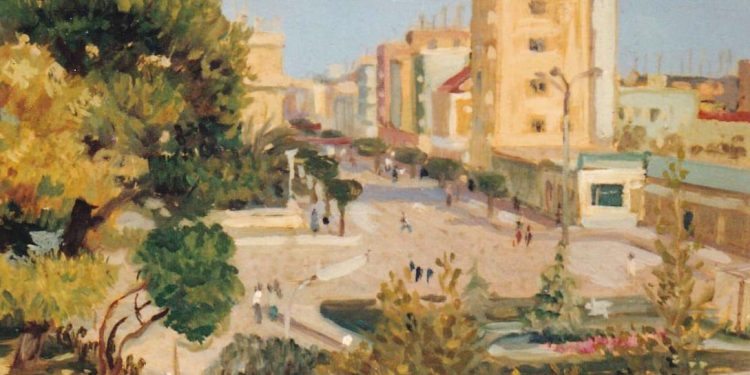
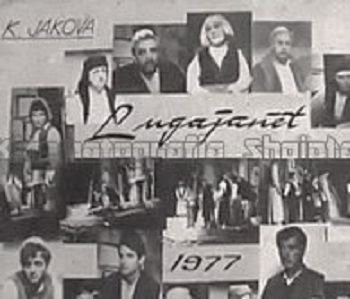
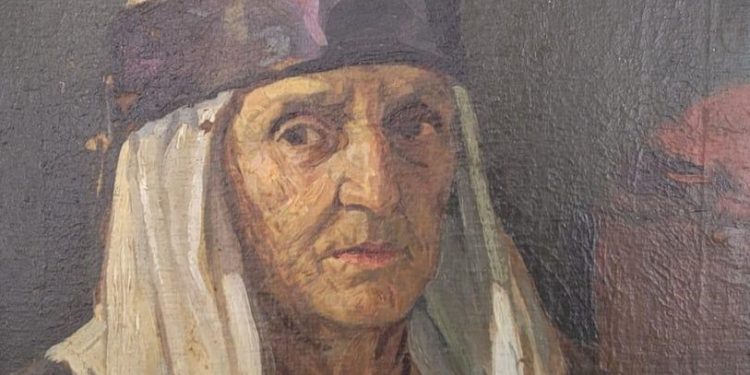

![“Count Durazzo and Mozart discussed this piece, as a few years prior he had attempted to stage it in the Theaters of Vienna; he even [discussed it] with Rousseau…” / The unknown history of the famous Durazzo family.](https://memorie.al/wp-content/uploads/2026/02/collagemozart_Durazzo-2-350x250.jpg)
